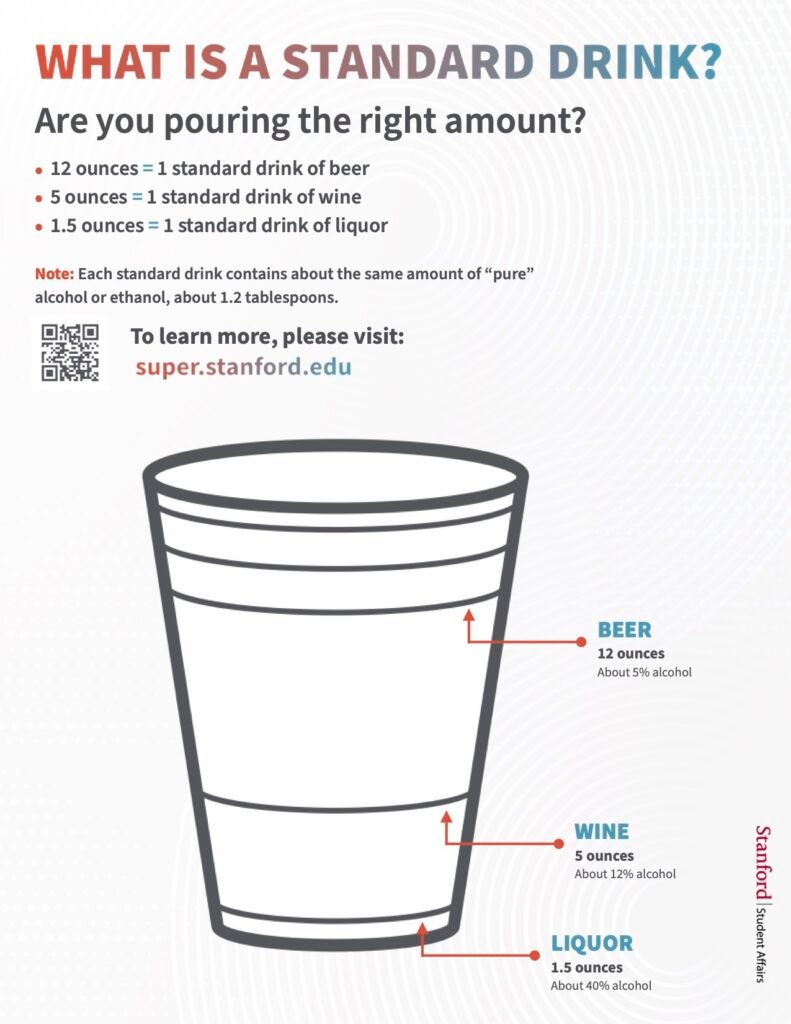SUPER puts emphasis on education to confront substance use
The Office of Substance Use Programs, Education & Resources is focusing on helping students make healthy choices.
The office that leads the university’s educational approach to reducing high-risk alcohol and other drug use among students has a new name and programs.
The Office of Substance Use Programs, Education & Resources (SUPER) has replaced the former Office of Alcohol Policy and Education. SUPER is expanding its focus beyond just alcohol and emphasizing its educational role, while the Dean of Students Office elevates policy awareness.
“Given these changes, we thought it was a good time to rebrand the office and lean into our core educational and prevention-based mission,” said Ralph J. Castro, Associate Dean of Students and Director of SUPER.
Peer educators
SUPER’s new programs include PEERs Educators. PEERs stands for Prevent, Educate, Empower and Refer. About 25 students have completed the training for this joint venture between the SUPER and SHARE (Sexual Harassment/Assault Response & Education Title IX Office) offices, and are now conducting workshops on alcohol use and sexual citizenship.
Continuing SUPER initiatives include the popular 5-SURE on Foot program. About 25 student workers are trained in bystander intervention skills to help head off unsafe behavior. They set up a table in high-traffic party areas on weekend nights and offer snacks, water, and safe walks home.
“I love my job,” said Lea Wenting Rysavy, Class of ’22, who is co-director of 5-SURE on Foot and a member of the PEERs Educator program. “I joined because I care about having my classmates be healthy and safe on campus, and I think that alcohol education and intervention is a really important way to do that.”
“The emphasis is on peer interactions and building trust in the community,” Rysavy said. “You listen to peers a lot – more, sometimes, than to someone who is in a position of authority.”
Educational interventions
Stanford’s efforts to educate students about substance abuse begin before students arrive on campus, with online education on alcohol and drug issues for incoming students.
When a student has an alcohol or drug issue – for example, a citation by the police, a visit to the ER, or repeated incidents – they are referred to SUPER, which is part of Vaden Health Services, for intervention rather than going through a disciplinary process.
“We assess their patterns of substance use: What happened to get them referred for services?” Castro said. “We develop a risk reduction plan that looks at how to prevent future issues from arising. It’s done in a private conversation that’s educationally focused.”
The Dean of Students Office handles support, intervention and discipline for more serious situations.
Healthy choices
Campus surveys show that alcohol remains the substance most widely used by Stanford students.

The SUPER office distributes plastic reusable cups with embedded horizontal lines that accurately measure 1.5 ounces of hard liquor, 5 ounces of wine or 12 ounces of beer – the standard for a single drink — plus a vertical axis with an infinity symbol for nonalcoholic drinks or EANABs (Equally Attractive Non-Alcoholic Beverages).
“If students overpour the line, they’re making a conscious decision to do that,” Castro said. “But students want to be healthy – they don’t want to get sick from over drinking.”
In 2016, the university changed some policies to restrict access to hard alcohol for undergraduates, including forbidding it at parties and limiting it to small containers.
“The increasing use of hard alcohol in the form of shots continues to be very troubling, particularly with first-year students,” Castro said.
Other drugs
The second most commonly used substance is cannabis, followed by nicotine and then hallucinogens.
SUPER is offering education on the dangers of edibles, the type of cannabis that seems to cause the most harm.
“Edibles aren’t regulated very well,” Castro said. “People overuse them and ingest too much THC, and it can lead to adverse outcomes.”
The SUPER office also supports training and education on opiate abuse. Students can sign up for training on how to use Narcan, which can reverse opiate overdoses. Once students complete the training, they can obtain Naloxone through a collaboration with Santa Clara County.
More initiatives
Here’s an overview of resources offered by SUPER – some long-standing and some new this year.
- 5-SURE Safe Rides. This program, named for the phone number students can call for a safe ride home (650-725-SURE), is returning after a pandemic hiatus. It employs student drivers and dispatchers to give fellow students rides for any reason, whether it’s because the riders have had too much to drink or simply that they don’t feel safe walking alone.
- Well House. The SUPER office provides leadership direction for the Well House, a substance-free and wellness-themed house on the Row that opened this year and helps to plan and execute substance-free events there.
- Collegiate Recovery. The SUPER office is working to build out the Stanford Collegiate Recovery Program for students in addiction recovery, to help them gain support from one another and university resources.
- Party Planning Education. The SUPER office oversees the guidelines for students who are hosting parties sponsored by official groups or held in public places and student residences on campus.
“We are excited to be working closely with students on these initiatives,” Castro said. “We all share the same goal of enhancing the health and safety of our community.”